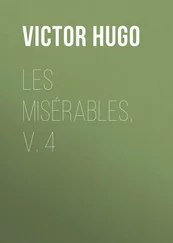Lascelles Wraxall - Les Misérables, v. 2
Здесь есть возможность читать онлайн «Lascelles Wraxall - Les Misérables, v. 2» — ознакомительный отрывок электронной книги совершенно бесплатно, а после прочтения отрывка купить полную версию. В некоторых случаях можно слушать аудио, скачать через торрент в формате fb2 и присутствует краткое содержание. Жанр: literature_19, foreign_antique, foreign_prose, на английском языке. Описание произведения, (предисловие) а так же отзывы посетителей доступны на портале библиотеки ЛибКат.
- Название:Les Misérables, v. 2
- Автор:
- Жанр:
- Год:неизвестен
- ISBN:нет данных
- Рейтинг книги:5 / 5. Голосов: 1
-
Избранное:Добавить в избранное
- Отзывы:
-
Ваша оценка:
- 100
- 1
- 2
- 3
- 4
- 5
Les Misérables, v. 2: краткое содержание, описание и аннотация
Предлагаем к чтению аннотацию, описание, краткое содержание или предисловие (зависит от того, что написал сам автор книги «Les Misérables, v. 2»). Если вы не нашли необходимую информацию о книге — напишите в комментариях, мы постараемся отыскать её.
Les Misérables, v. 2 — читать онлайн ознакомительный отрывок
Ниже представлен текст книги, разбитый по страницам. Система сохранения места последней прочитанной страницы, позволяет с удобством читать онлайн бесплатно книгу «Les Misérables, v. 2», без необходимости каждый раз заново искать на чём Вы остановились. Поставьте закладку, и сможете в любой момент перейти на страницу, на которой закончили чтение.
Интервал:
Закладка:
Other fatalities were yet to arise. Was it possible for Napoleon to win the battle? We answer in the negative. Why? On account of Wellington, on account of Blücher? No; on account of God. Buonaparte, victor at Waterloo, did not harmonize with the law of the 19th century. Another series of facts was preparing, in which Napoleon had no longer a place: the ill will of events had been displayed long previously. It was time for this vast man to fall; his excessive weight in human destiny disturbed the balance. This individual alone was of more account than the universal group: such plethoras of human vitality concentrated in a single head – the world, mounting to one man's brain – would be mortal to civilization if they endured. The moment had arrived for the incorruptible supreme equity to reflect, and it is probable that the principles and elements on which the regular gravitations of the moral order as of the material order depend, complained. Streaming blood, over-crowded grave-yards, mothers in tears, are formidable pleaders. When the earth is suffering from an excessive burden, there are mysterious groans from the shadow, which the abyss hears. Napoleon had been denounced in infinitude, and his fall was decided. He had angered God. Waterloo is not a battle, but a transformation of the Universe.
CHAPTER X
THE PLATEAU OF MONT ST. JEAN
The battery was unmasked simultaneously with the ravine, – sixty guns and the thirteen squares thundered at the cuirassiers at point-blank range. The intrepid General Delort gave a military salute to the English battery. The whole of the English field artillery had entered the squares at a gallop; the cuirassiers had not even a moment for reflection. The disaster of the hollow way had decimated but not discouraged them; they were of that nature of men whose hearts grow large when their number is diminished. Wathier's column alone suffered in the disaster: but Delort's column, which he had ordered to wheel to the left, as if he suspected the trap, arrived entire. The cuirassiers rushed at the English squares at full gallop, with hanging bridles, sabres in their mouths, and pistols in their hands. There are moments in a battle when the soul hardens a man, so that it changes the soldier into a statue, and all flesh becomes granite. The English battalions, though fiercely assailed, did not move. Then there was a frightful scene. All the faces of the English squares were attacked simultaneously, and a frenzied whirl surrounded them. But the cold infantry remained impassive; the front rank kneeling received the cuirassiers on their bayonets, while the second fired at them; behind the second rank the artillery-men loaded their guns, the front of the square opened to let an eruption of canister pass, and then closed again. The cuirassiers responded by attempts to crush their foe; their great horses reared, leaped over the bayonets, and landed in the centre of the four living walls. The cannon-balls made gaps in the cuirassiers, and the cuirassiers made breaches in the squares. Files of men disappeared, trampled down by the horses, and bayonets were buried in the entrails of these centaurs. Hence arose horrible wounds, such as were probably never seen elsewhere. The squares, where broken by the impetuous cavalry, contracted without yielding an inch of ground; inexhaustible in canister they produced an explosion in the midst of the assailants. The aspect of this combat was monstrous: these squares were no longer battalions, but craters; these cuirassiers were no longer cavalry, but a tempest, – each square was a volcano attacked by a storm; the lava combated the lightning.
The extreme right square, the most exposed of all, as it was in the air, was nearly annihilated in the first attack. It was formed of the 75th Highlanders; the piper in the centre, while his comrades were being exterminated around him, was seated on a drum, with his bagpipe under his arm, and playing mountain airs. These Scotchmen died thinking of Ben Lothian, as the Greeks did remembering Argos. A cuirassier's sabre, by cutting through the pibroch and the arm that held it, stopped the tune by killing the player.
The cuirassiers, relatively few in number, and reduced by the catastrophe of the ravine, had against them nearly the whole English army; but they multiplied themselves, and each man was worth ten. Some Hanoverian battalions, however, gave way: Wellington saw it and thought of his cavalry. Had Napoleon at this moment thought of his infantry, the battle would have been won, and this forgetfulness was his great and fatal fault. All at once the assailers found themselves assailed; the English cavalry were on their backs, before them the squares, behind them Somerset with the one thousand four hundred Dragoon Guards. Somerset had on his right Dornberg with the German chevau-legers, and on his left Trip with the Belgian carbineers; the cuirassiers, attacked on the flank and in front, before and behind, by infantry and cavalry, were compelled to make a front on all sides. But what did they care? They were a whirlwind; their bravery became indescribable.
In addition, they had behind them the still thundering battery, and it was only in such a way that these men could be wounded in the back. One of these cuirasses with a hole through the left scapula is in the Waterloo Museum. For such Frenchmen, nothing less was required than such Englishmen. It was no longer a mêlée ; it was a headlong fury, a hurricane of flashing swords. In an instant the one thousand four hundred Dragoons were only eight hundred; and Fuller, their lieutenant-colonel, was dead. Ney dashed up with Lefebvre Desnouette's lancers and chasseurs; the plateau of Mont St. Jean was taken and retaken, and taken again. The cuirassiers left the cavalry to attack the infantry, or, to speak more correctly, all these men collared one another and did not loose their hold. The squares still held out after twelve assaults. Ney had four horses killed under him, and one half of the cuirassiers remained on the plateau. This struggle lasted two hours. The English army was profoundly shaken; and there is no doubt that, had not the cuirassiers been weakened in their attack by the disaster of the sunken road, they would have broken through the centre and decided the victory. This extraordinary cavalry petrified Clinton, who had seen Talavera and Badajoz. Wellington, three parts vanquished, admired heroically; he said in a low voice, "Splendid!" The cuirassiers annihilated seven squares out of thirteen, captured or spiked sixty guns, and took six English regimental flags, which three cuirassiers and three chasseurs of the Guard carried to the Emperor before the farm of La Belle Alliance.
Wellington's situation had grown worse. This strange battle resembled a fight between two savage wounded men, who constantly lose their blood while continuing the struggle. Which would be the first to fall? The combat for the plateau continued. How far did the cuirassiers get? No one could say; but it is certain that on the day after the battle, a cuirassier and his horse were found dead on the weighing machine of Mont St. Jean, at the very spot where the Nivelles, Genappe, La Hulpe, and Brussels roads intersect and meet. This horseman had pierced the English lines. One of the men who picked up this corpse still lives at Mont St. Jean; his name is Dehaye, and he was eighteen years of age at the time. Wellington felt himself giving way, and the crisis was close at hand. The cuirassiers had not succeeded, in the sense that the English centre had not been broken. Everybody held the plateau, and nobody held it; but, in the end, the greater portion remained in the hands of the English. Wellington had the village and the plain; Ney, only the crest and the slope. Both sides seemed to have taken root in this mournful soil. But the weakness of the English seemed irremediable, for the hemorrhage of this army was horrible. Kempt on the left wing asked for reinforcements. "There are none," Wellington replied. Almost at the same moment, by a strange coincidence which depicts the exhaustion of both armies, Ney asked Napoleon for infantry, and Napoleon answered, "Infantry? where does he expect me to get them? Does he think I can make them?"
Читать дальшеИнтервал:
Закладка:
Похожие книги на «Les Misérables, v. 2»
Представляем Вашему вниманию похожие книги на «Les Misérables, v. 2» списком для выбора. Мы отобрали схожую по названию и смыслу литературу в надежде предоставить читателям больше вариантов отыскать новые, интересные, ещё непрочитанные произведения.
Обсуждение, отзывы о книге «Les Misérables, v. 2» и просто собственные мнения читателей. Оставьте ваши комментарии, напишите, что Вы думаете о произведении, его смысле или главных героях. Укажите что конкретно понравилось, а что нет, и почему Вы так считаете.












